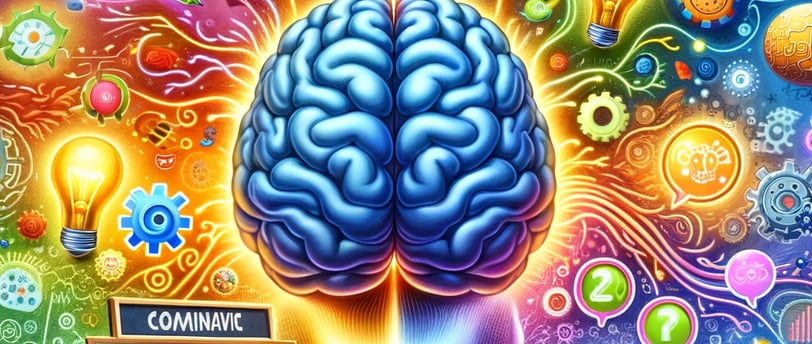The Mental Marvels of Quizzing: A Deep Dive into Its Cognitive Benefits
How Quizzes Sharpen Our Minds and Enhance Learning
Quizzes have long been a popular form of entertainment, education, and evaluation, but their impact extends far beyond the mere recalling of facts. Recent studies and cognitive science insights reveal that quizzing is a powerful tool for mental stimulation, offering a myriad of benefits that promote brain health, enhance memory retention, and foster learning. This article explores the multifaceted mental advantages of engaging in quizzes, providing insights into why they are more than just games.
Boosting Memory and Recall
One of the most significant benefits of quizzing is its ability to enhance memory recall. The process of retrieving information during a quiz strengthens neural pathways, making it easier to access the same information in the future. This phenomenon, known as the testing effect or retrieval practice, suggests that quizzing is not just a test of memory but a way to improve it. Regularly participating in quizzes can turn fleeting memories into lasting knowledge.
Enhancing Learning and Understanding
Quizzes encourage deeper engagement with material, prompting learners to understand concepts rather than just memorize facts. By challenging individuals to apply knowledge in different contexts, quizzes promote higher-order thinking skills such as analysis, synthesis, and application. This not only solidifies understanding but also enhances the ability to transfer knowledge to new situations, a key aspect of effective learning.
Stimulating Cognitive Flexibility
Engaging in quizzes can enhance cognitive flexibility, the ability to think about multiple concepts simultaneously and switch between different kinds of thinking. By presenting information in varied formats and requiring rapid adjustment to different question types, quizzes help sharpen mental agility. This cognitive flexibility is crucial for problem-solving, creativity, and adapting to new information.
Encouraging Growth Mindset
Quizzes can foster a growth mindset by presenting challenges as opportunities to learn rather than obstacles to achievement. Feedback from quizzes, whether through correct answers or learning from mistakes, reinforces the idea that intelligence and abilities can be developed through effort and perseverance. This perspective encourages continuous learning and resilience in the face of challenges.
Reducing Study Anxiety
Regular quizzing can also help reduce the anxiety associated with high-stakes testing. By simulating the conditions of exams in a low-pressure environment, quizzes can desensitize individuals to the stress of timed tests and evaluations. This not only improves performance on actual exams but also reduces the overall anxiety associated with academic achievement.
The Social Benefits of Quizzing
Beyond the individual cognitive benefits, quizzing also has social advantages. Participating in quizzes with others promotes social interaction, teamwork, and competition, all of which are beneficial for mental health. The shared experience of learning, celebrating correct answers, and navigating challenges together can strengthen social bonds and foster a sense of community.
In conclusion, the mental benefits of quizzing extend far beyond the simple recall of facts. From enhancing memory and understanding to stimulating cognitive flexibility and encouraging a growth mindset, quizzes are a valuable tool for mental development. Whether used in educational settings, as a form of entertainment, or as a competitive activity, quizzing offers a fun and effective way to keep our brains sharp and engaged.


